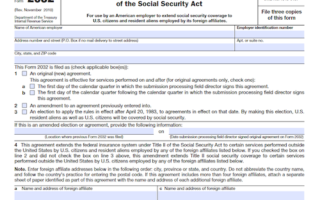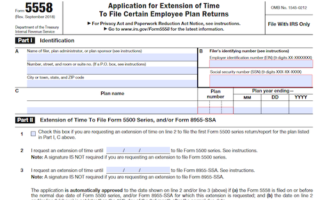With Form 5330, individuals and employers are responsible for reporting certain excise taxes, such as the tax-exempt entity’s involvement in a prohibited tax shelter transaction, the employer’s failure to meet the minimum funding standards, and the employer’s payment of excess fringe benefits.
What is Form 5330?
Form 5330 is an IRS form used to report the tax applicable to a variety of prohibited transactions and other activities related to employee benefit plans. It must be filed by plan entity managers, employers, sponsors of multiemployer plans, individuals dealing with section 403(b)(7)(A) custodial accounts, and more to report taxes and failure to comply with related rules and requirements. To file, taxpayers must determine their filing due date based on the specific excise tax they are reporting and must submit their paperwork either electronically or through the mail prior to the due date. If taxes are not filed or paid on time, interest and penalties may be applied. Amended Form 5330 must be filed to claim a refund of an overpayment, receive a credit for an overpayment, or to report additional taxes due within the same tax year as those already reported.
IRS Form 5330 – Who Needs to Fill It Out?
Form 5330 must be filled out by any person or company liable for a prohibited tax shelter transaction (section 4965(a)(2)), failure to pay liquidity shortfall (section 4971(f)), failure to comply with a funding improvement or rehabilitation plan (section 4971(g)(2)), failure to meet requirements for plans in endangered or critical status (section 4971(g)(3)), failure to adopt a rehabilitation plan (section 4971(g)(4)), failure to adopt a funding restoration plan (section 4971(h)), nondeductible contributions to qualified plans (section 4972), excess contributions to a section 403(b)(7)(A) custodial account (section 4973(a)(3)), a prohibited transaction (section 4975), a disqualified benefit provided by funded welfare plans (section 4976), excess fringe benefits (section 4977), and certain employee stock ownership plan (ESOP) dispositions (section 4978). Generally, Form 5330 must be filed by the 15th day of the 5th, 10th, or 15th month, depending on the taxable period of the individual submitting the form. Extensions can be requested up to 6 months after the initial due date with Form 5558. Interest and penalties may be assessed for late filing and late payment. Amended returns can be filed for a tax refund or credit, or additional taxes due.
Step-by-Step: Form 5330 Instructions For Filling Out the Document
To ensure that taxes are paid on time for Form 5330, the filer needs to take action based on the dates listed in Table 1. They must file electronically or on paper to the IRS mailing address or a private delivery service depending on their preference. Late filing carries a penalty of up to 25%, and late payment carries a penalty of up to 12.5%. To claim a refund or seek a credit, they must file an amended return providing details and supporting evidence for the refund or credit. Additionally, they must provide details to explain any reasonable cause for late filing or payment.
Below, we present a table that will help you understand how to fill out Form 5330.
| Information Required for Form 5330 | Details |
|---|---|
| Filing Deadlines | Important dates for filing Form 5330 |
| Penalties | Penalties for late filing or payment |
| Refunds and Credits | Process for claiming refunds or credits |
| Reasonable Cause | Explanation of reasonable cause for late filing |
Do You Need to File Form 5330 Each Year?
Form 5330 is required to report taxes on any prohibited tax shelter transaction, minimum funding deficiency, liquidity shortfall, failure to comply with a rehabilitation plan, and other breaches of employee benefit plans. Employers must file a separate Form 5330 for each failure or other relevant event due on the 15th of the 5th, 10th, or 15th month after the close, end, or other specified period. An extension can be requested to increase this time frame. Form 5330 must be filed either electronically or with a paper form. Interest and penalties will accrue for late filing and late payment of taxes. Additional taxes can be reported on an amended return to receive a refund or credit.
Download the official IRS Form 5330 PDF
On the official IRS website, you will find a link to download Form 5330. However, to make it easier for you, we are providing the link in our article, which comes directly from the official irs.gov website! Click to download: Form 5330
Sources:




